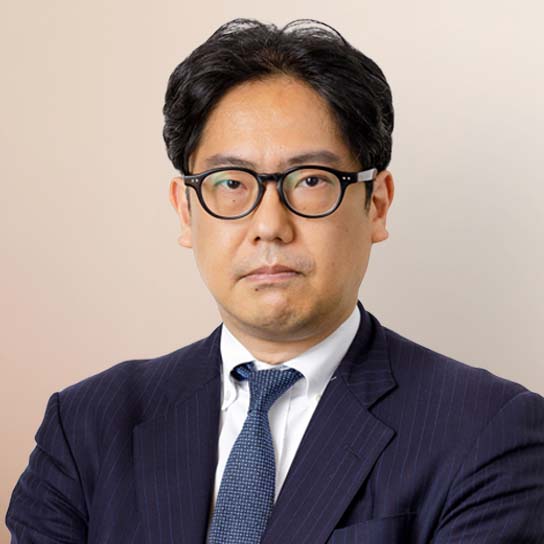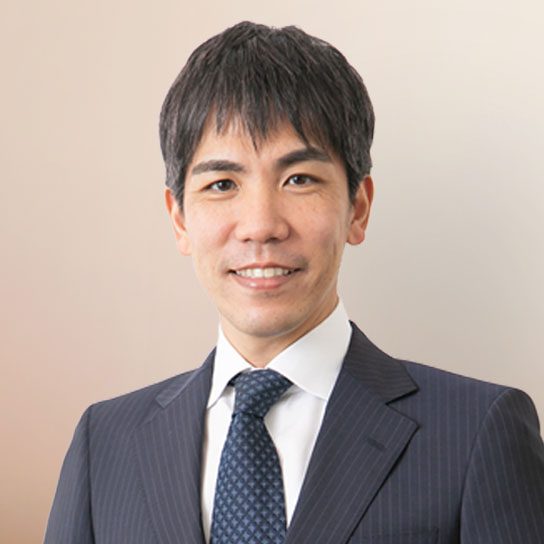

- Pro Bono
- Community
- DE&I
Communicating the importance of learning about the law to support the future of the legal community
- What is the purpose of Nishimura & Asahi's Legal Education Project?
Sometimes we see reports that “the number of students wishing to study law is decreasing.” To learn about the law is to think about the coordination of interests in society and the securing of innovation, and we believe that it is very important in helping us become productive members of society. This kind of education is a vital element not only for students who wish to be attorneys but also for students who seek other career paths. I believe that having our personnel reach out into the community is in line with our firm’s basic philosophy and goal of “to realize an affluent and fair society based on the rule of law.” Our focus is on educational activities, since we believe, as lawyers, that learning about the trends and areas of interest of current students and schools will lead to beneficial mutual exchanges, in addition to informing students about the work of lawyers, who they would not ordinarily have an opportunity to meet.
Significance of the legal education we provide
-Masaru Shibahara, Attorney at Law

(Masaru Shibahara)
Lessons learned
-Takeshi Nemoto, Attorney at Law
I also realized that there were still challenges and difficulties that we needed to resolve. For example, in the introductory part of the lesson it could be a challenge to try to get the students interested in laws that didn’t relate to their own interests and experiences. It was also a challenge to know how to best proceed with the lesson while also responding to the various opinions and viewpoints that came out during the class discussions.
We will make use of this experience in the next and subsequent years to make efforts to improve the education we provide.

Even though we had many preparatory meetings at the school about the content of the class and received insightful feedback from the teacher in charge of the teaching materials we had created, we sometimes received unexpected reactions from the students during class. We received positive comments from students, such as, “It's fun to discuss issues from different viewpoints.” We are continuing our research so that we can understand the importance of having direct contact with students in the field of education and provide them with a deeper level of learning.
As more people become aware of these legal education activities both inside and outside the firm, inquiries from schools that wish to incorporate legal education into their curriculums have also increased.
Encourage and push students who want to take on challenges
-Mr. Akira Uchioke, Saitama Prefectural Urawa Girls' Upper Secondary School Teacher

Urawa Girls' Upper Secondary School
Mr. Akira Uchioke, a teacher at Saitama Prefectural Urawa Girls' Upper Secondary School where we gave legal education classes, provided us with information on the school and classes in advance, as well as many proposals and advice so that we could provide a more valuable experience to the students. Thanks to Mr. Uchioke’s generosity in sharing his considerable teaching experience, we were able to spend a valuable and productive time with a large number of students. As a result of these classes, the members of this office realized anew that the relationship between people is the starting point of education, that each school has its own unique educational policy, and that the interests of each teacher and student varied. When I spoke directly with students with diverse ways of thinking and told them that law is not a criterion for judging people, but a tool for helping people with different ways of thinking to live in better conditions, I saw the students' eyes light-up, and I felt the joy of playing a role in communicating the value and significance of learning about the law
Legal education and diversity
-Asako Joba, Senior Manager of the Diversity Promotion Office

Urawa Girls' Upper Secondary School(Asako Joba)
Formation of Nishimura & Asahi Legal Education Team
-Pro bono Committee

As a result of the formation of the Pro bono Practice Legal Education Team, more and more lawyers and staff of different generations have been involved in providing legal education. In the future, team members will not only actively participate in legal education activities to gain experience, but will also expand their activities and continuously implement them.
Member
Takeshi has handled many complex M&A transactions and provides sincere advice to his clients. He has extensive experience in M&A-related disputes, and is well versed in the various issues facing companies with founding family shareholders. In recent years, he has been involved in many cases involving business and human rights, impact investing, and advises companies from the perspective of sustainability. He is also actively involved in pro bono work and is one of the most experienced in Japan.



He has an extensive track record representing clients in over 80 corporate rehabilitation and bankruptcy cases to date, playing an instrumental role in communicating with financial institutions on M&A, financing, and private liquidations from a multifaceted perspective. He is also known for his expertise in business succession cases involving a wide range of competing interests, such as drafting family charters, and handling litigation, leveraging his insights into industry conditions and economic circumstances surrounding his clients.